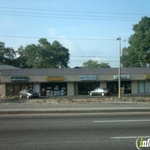
A Kilbride Insurance Inc
OPEN NOW
Today: 9:00 am - 5:00 pm
 auto services
auto services beauty
beauty home services
home services insurance
insurance legal services
legal services medical services
medical services pet services
pet services restaurants
restaurants
Phone: (813) 985-7467
Address: 4707 E Busch Blvd, Tampa, FL 33617
Website: http://akilbride.com